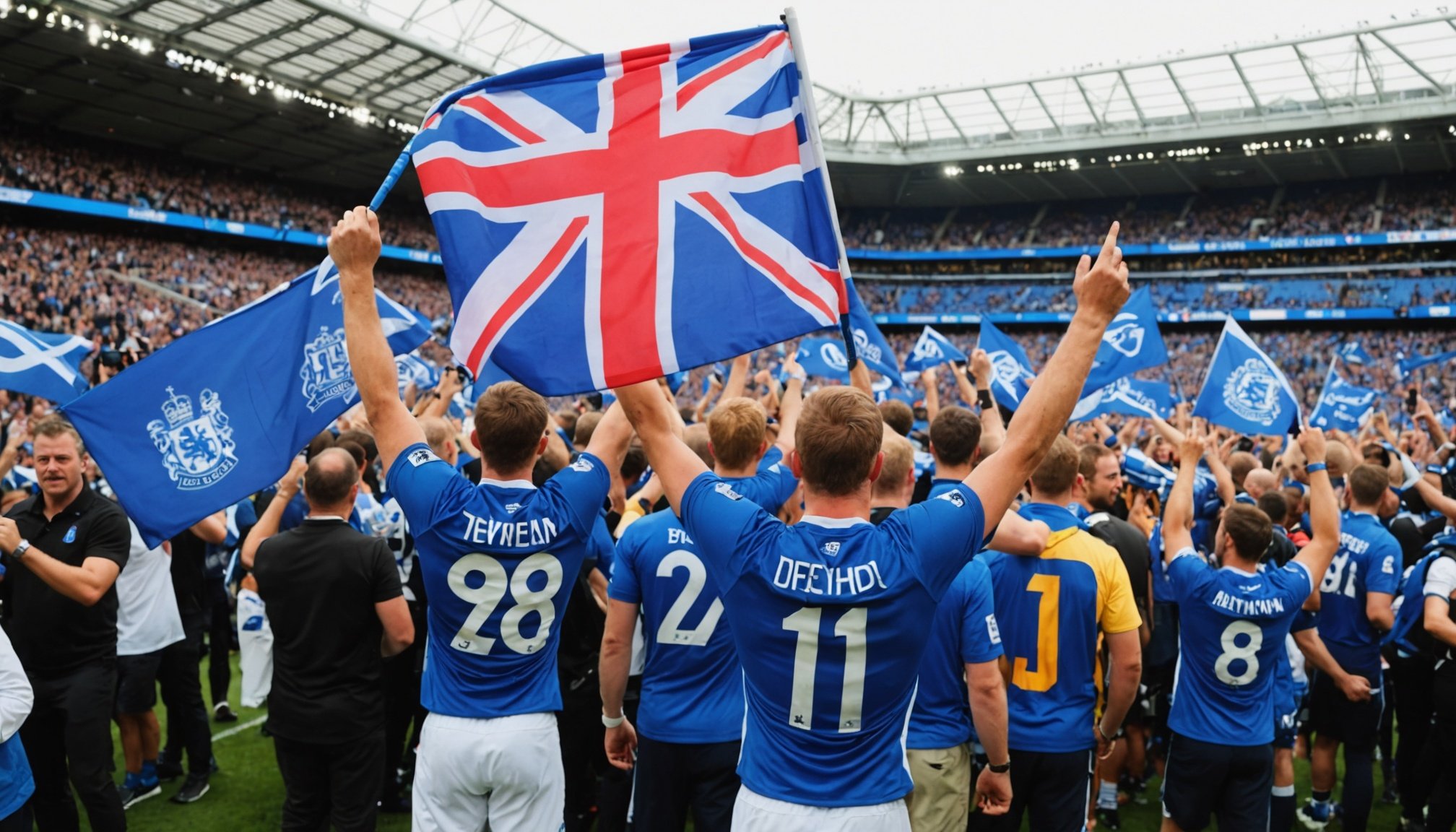Direct Ways Fans Can Influence UK Sports Teams
Fans have a direct impact on their UK sports teams by actively engaging through several tangible avenues. One of the most immediate forms of fan engagement is attending matches in person. This presence boosts team morale and creates an electrifying atmosphere that players can draw energy from. Vocal support during games not only enhances the fan experience but also sends a clear message to team management about the supporters’ passion and commitment.
Beyond the stadium, fans can participate in official fan forums and open meetings. These platforms allow supporters to voice opinions, offer constructive feedback, and collaborate with club officials. This supporter action enables fans to have a say in decisions affecting club policies, matchday experiences, and community outreach programs.
Also to see : How Does the British Sports Landscape Evolve with Emerging Regulations?
Another powerful method is organising and supporting petitions aimed at initiating change. Whether it concerns ticket pricing, club ownership, or sustainability initiatives, a collective petition can influence executives to reconsider or amend their approaches. Engaging in these campaigns shows the club that the fanbase is united and serious about shaping the team’s direction.
By combining attendance, communication, and activism, fans exercise meaningful agency in the UK sports landscape. Their direct impact is a vital force that drives clubs toward responsiveness and accountability.
Also read : How Are UK Sports Teams Preparing for International Competitions?
Harnessing the Power of Social Media and Online Communities
Enhancing engagement through digital channels
Social media activism has transformed how campaigns gain momentum. By leveraging platforms like Twitter, Instagram, and Facebook, activists can rapidly spread awareness to a vast audience. The immediacy of digital influence enables real-time responses and mobilization, making social media activism an indispensable tool for modern movements.
Online fan communities play a crucial role in this ecosystem. These groups, often centered around shared interests or causes, create a sense of belonging and encourage active participation. Through forums, groups, and hashtag campaigns, fans unite to support initiatives, amplifying messages far beyond traditional boundaries. This collective voice often attracts attention from larger audiences and stakeholders.
Building coalitions via digital platforms is another powerful aspect. Organizations and individuals can connect across geographical boundaries, forming strategic partnerships. Social media activism facilitates collaboration by providing direct communication lines and spaces for resource sharing. Teams also engage through official online channels to maintain transparency and foster trust with their supporters. These interactions help sustain momentum and deepen connections within the community.
Harnessing social media activism and online fan communities not only raises awareness but also creates a dynamic network of support, making digital influence a cornerstone for impactful campaigns.
The Role and Impact of Supporters’ Trusts and Fan Ownership
Supporters’ trusts have emerged as vital mechanisms for fans seeking a strong voice in their club’s future. By joining or forming supporters’ trusts, fans pool their resources and influence to promote fan ownership and democratic participation in decision-making. This collective decision-making creates a direct link between the club’s management and its loyal supporters, ensuring the club operates with the fans’ best interests in mind.
Notably, several British clubs have thrived under fan ownership models. These cases demonstrate that supporters’ trusts can stabilize finances, prioritize sustainable growth, and safeguard club heritage. Fan ownership enables members to elect representatives to boards, enabling them to influence governance consistently and transparently. With this setup, policy decisions are no longer made solely by corporate owners or distant investors but incorporate supporters’ perspectives and values.
The profound impact of supporters’ trusts extends beyond ownership; it reshapes club culture. Fans feel empowered, invested, and accountable for the club’s direction. This dynamic drives community engagement and fosters loyalty. For those interested in exploring how to get involved or establish a supporters’ trust, resources on forming supporters’ trusts provide practical steps to activate this powerful form of collective decision-making.
Case Studies: How UK Fans Have Shaped Club Futures
Exploring real examples of fan power in British football
In the landscape of UK football, fan activism examples underscore significant shifts in club trajectories. A prominent case is the supporter’s role in preventing financial collapse. Through collective action, fans have influenced managerial appointments and safeguarded club ownership, showcasing the impact of grassroots involvement.
When fans organize effectively, clubs often experience a notable turnaround. Take the instance where supporters campaigned to reinstate managerial staff or vetoed proposed stadium moves. These campaigns highlight fans’ ability to steer club futures, sometimes resulting in improved performance and financial health.
However, outcomes are not always positive. Unsuccessful campaigns typically arise from fragmented fan responses or lack of clear objectives. The lesson here is the power of unity and informed advocacy. Clubs that engage constructively with fans tend to thrive, reflecting a healthy relationship between stakeholders.
These case studies reveal that UK football influence extends beyond the pitch. It embodies a democratic spirit wherein dedicated supporters shape strategic decisions, preserving club heritage while fostering growth. Understanding these examples equips fans with insights to approach activism effectively and responsibly.
Overcoming Barriers to Fan Influence
Understanding common hurdles and strategies to empower fan voices
Engaged fans often confront multiple challenges when striving to influence their clubs. One primary obstacle is navigating the bureaucracy embedded within traditional club structures. Decision-making can be slow, with formal channels that inadvertently restrict direct fan engagement. This environment creates significant barriers to meaningful contribution, frustrating supporters eager to be heard.
Another challenge lies in building credibility with club leadership. Fans must demonstrate their knowledge, commitment, and constructive intent to be taken seriously. Without this trust, even the most passionate fan input risks dismissal as mere opinion rather than valuable insight.
To overcome these fan engagement obstacles, supporters need clear strategies. Establishing organized fan groups that communicate cohesively helps present a unified voice. Engaging through official feedback mechanisms while respecting club processes promotes positive dialogue. Equally, educating fans on club operations boosts their ability to interact effectively with decision-makers.
By addressing these challenges head-on, fans can break down entrenched barriers, enhancing their ability to contribute meaningfully to the clubs they love. Persistence, strategic involvement, and professionalism are key factors in turning passionate support into real influence.
Best Practices for Making a Positive Impact
Effective strategies to amplify fan support
Engaging constructively with club officials and the media is vital for fans who wish to create a positive fan influence. Approaching communication with respect and clarity paves the way for meaningful dialogue. Instead of venting frustration, fans can focus on offering solutions, which demonstrates maturity and commitment.
Setting realistic goals aligns fan expectations with the club’s capabilities. Unrealistic demands risk alienating both the team and fellow supporters. Unity among fans strengthens this constructive engagement, transforming individual voices into a powerful, cohesive message that club officials cannot ignore.
Actionable feedback is key. Rather than blanket criticism, identifying specific areas for improvement—such as matchday experience or youth player development—helps officials understand and address concerns effectively. At the same time, fans should recognize the limitations faced by clubs, including financial constraints and regulatory restrictions. This awareness fosters patience and continued support even during challenging periods.
Overall, balancing direct communication with respect, realistic goals, and well-informed feedback cultivates a positive atmosphere that benefits everyone involved. This approach ensures that fan passion translates into meaningful progress rather than friction.



